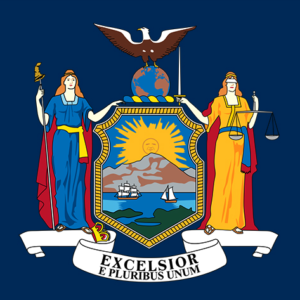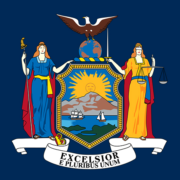New York’s Adult-Use Cannabis Regulations
By: Dustin Robinson

On March 31, 2021, the Marijuana Regulation and Tax Act (“MRTA”) was signed into law. MRTA established New York’s adult-use cannabis regulations and expanded upon the state’s medical cannabis program. The state’s Office of Cannabis Management (“OCM”) and Cannabis Control Board (“CCB”) will oversee the state’s adult-use cannabis industry and establish rules for cannabis operations and licensing. The CCB will consist of five members appointed by the governor and each house of the state legislature. As of July 2021, the CCB has not been established. Until the CCB is established, New York cannot begin forming regulations for operators or establish the licensing process for adult-use cannabis businesses. Right now, it looks like we will see licensing open up in early 2022.
The state plans to offer several types of cannabis licenses. While the total number of licenses to be issued has not been decided, New York has established which type of licenses will be available. Adult-use cannabis licenses in New York include:
- Cultivator – A cultivation licensee is permitted to grow cannabis to be sold to processors, distributors, retailers, and on-site consumption sites. A cultivator can only have one cultivator license. In addition, a cultivator can obtain one processor license and one distributor license solely for the distribution of the cultivator’s own products. Yet, an owner of a cultivation license cannot have a direct or indirect interest in more than one cultivation center. In addition, an owner of a cultivation license cannot also hold a direct or indirect interest in a retail dispensary license.
- Processor – A processor license permits the creation of cannabis products through cannabis extractions. A processor can only have one processor license. A processor may obtain one cultivation license and one distributor license solely for the distribution of the processor’s own products. Yet, the owner of a processor license cannot also hold a direct or indirect interest in a retail dispensary license.
- Distributor – A distributor purchases cannabis and cannabis products from licensed cultivators, processors, cooperatives, microbusinesses, or registered organizations and sells the cannabis and cannabis products to licensed retailers and on-site consumption sites. A person or entity issued an adult-use cannabis cultivator, processor, and/or distributor license may hold and operate all issued licenses on the same premises. Yet an owner of a distributor license cannot have a direct or indirect financial interest in any microbusiness, adult-use retail dispensary, adult-use on-site consumption licensee or in any registered organization.
- Retailer – A retailer sells cannabis and cannabis products to consumers who are older than 21. Nobody can have a direct or indirect financial or controlling interest in more than three adult-use retail dispensary licenses.
- Delivery – A delivery license allows the licensee to deliver cannabis directly to customers older than 21. A delivery licensee cannot have more than 25 individuals providing full-time paid delivery services. New York has made clear that microbusiness licenses are intended to promote social equity applicants.
- On-Site Consumption – An on-site consumption license permits consumers to purchase and consume cannabis at a facility. The CCB will develop more regulations, but it has made clear that activities such as gambling, contests, and fireworks are prohibited at on-site consumption facilities. In addition, no person can have a direct or indirect financial or controlling interest in more than three on-site consumption licenses.
- Microbusiness – A microbusiness license allows for limited cultivation, processing, distribution, delivery, and dispensing of their own adult-use cannabis and cannabis products. The CCB will determine the size of microbusinesses and the operating requirements for microbusinesses. Yet, the CCB has already established that a microbusiness may only distribute its own cannabis and cannabis products to dispensaries. A microbusiness licensee cannot hold a direct or indirect interest in any other New York cannabis license. New York has made clear that microbusiness licenses are intended to promote social equity applicants.
- Cooperative – A cooperative license allows for vertically integrated (cultivation, processing, distribution/sale) of cannabis and cannabis products to other licensed cannabis business. The big caveat here is that a cooperative cannot sell products directly to consumers. That means a cooperative cannot operate a retail dispensary or deliver to consumers. Additionally, to qualify as a cooperative, the applicant must be a registered LLC or LLP in New York and comprised of New York residents, among other corporate requirements. No member of a cooperative can have a direct or indirect financial interest in another New York cannabis license.
- Nursery – A nursey license permits the production, sale and distribution of clones, immature plants, seeds, and other agricultural products to licensed cultivation, cooperative, microbusinesses, and registered organizations in New York. In addition, a licensed cultivator is allowed to obtain one nursery license.
- Registered Organization – Existing medical registered organizations can obtain a license to engage in adult-use cannabis activities. However, registered organizations are limited to dispensing adult-use cannabis at 3 retail dispensaries and are only allowed to sell their own products. Furthermore, registered organizations must continue to offer medical marijuana in compliance with regulations to be developed by the CCB.
New York plans to issue 50% of licenses to individuals from communities disproportionately impacted by cannabis prohibition, minority- and woman-owned businesses, distressed farmers, and service-disabled veterans. A disproportionately impacted community is a geographical area that was adversely affected by cannabis prohibition during a certain time period when compared to the rest of the state. A minority-owned business is at least 51% owned by one or more minority group members, which is defined as black persons, Hispanic persons, Native American persons, and Asian and Pacific Islander persons. A women-owned business is at least 51% owned by one or more women. A distressed farmer is a New York state resident or business enterprise that either (1) meets the small farm classification developed by the USDA and has been disproportionately impacted; or (2) is a small farm operator and a member of a group that has been historically underrepresented in farm ownership. A service-disabled veteran business is at least 51% owned by one or more a veteran who received a compensation rating of 10% or greater from the United States Department of Veterans Affairs or from the United States Department of Defense because of a service-connected disability incurred in the line of duty.
Cities, towns, and villages have until December 31, 2021, to enact local laws which prohibit retail sales and on-site consumption of cannabis. After December 31, 2021, local governments cannot prohibit retail dispensaries and on-site consumption sites if a local law has not been enacted. Yet, the local government may place reasonable time, place and manner restrictions on retail dispensaries and on-site consumption sites. In other words, the local government can limit where and when retail dispensaries and on-site consumption sites can operate so long as the restrictions are not overly burdensome and allow the businesses adequate time to operate.
New York has the potential to become one of the largest cannabis markets in the United States. As millions of people from all over the world visit, New York’s adult-use cannabis market is poised to succeed. We look forward to regulations being published in late 2021 and for applications for businesses to open up by early 2022.


